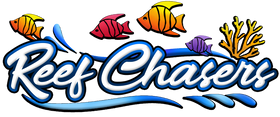ROCK FLOWER ANEMONE CARE OVERVIEW
LIGHT: MODERATE (100-200 par) is what we find best although other recommendations may be to blast them with light. We have found they tend to prefer the light a little more on the moderate side, or even can thrive under low conditions. Overall these anemones seem adaptable to a variety of lighting conditions. You can learn more about Lighting and it's overall impact on your reef tank in our article Lighting and your Reef Tank
FOOD: We haven't noticed that any specific feeding strategy is required for these anemones but they are aggressive eaters and will benefit greatly from spot feeding meaty foods like mysis or brine. Like most anemones they capture nutrients from the water and will do best when supplied a healthy amount of food. Our method is high import, high export. You can learn more about Feeding and Filtration in our article Feeding, Filtration and your Reef Tank.
FLOW: LOW-MODERATE. Rock flower anemones tend to attach to the rockwork fairly quickly. When acclimating them we recommend killing the flow makers for a bit so they can attach safely without getting tossed around. Once attached, they do not tend to move very much and so there is not much risk of them making their way into your flow makers. Too much flow, especially direct flow, can cause damage to the coral's tissue or an inability to capture food. You can read more about Flow and its overall impact on your reef tank in our article Flow and your Reef Tank
DIFFICULTY: BEGINNER. Of all the anemone species this is probably the easiest one. There is very little to worry about in terms of long term success with these Anemones. Anemones do not consume Alkalinity and Calcium and do not lay a calcium carbonate skeleton and so these parameters will not require extreme maintenance to keep anemones successfully. Like with all corals, specimens have been seen to do well in captivity when the right combination of Food/Light/Flow and Filtration are achieved.
PRICE: LOW. Flower anemones are very affordable and make great additions to your reef tank. They come in a variety of striking colors and are easy to keep and care for. We highly recommend!
COLLECTION ZONE: Indo-Pacific
SCIENTIFIC NAME: Phymanthus crucifer, commonly known as rock flower anemone, flower anemone, red beaded anemone or the beaded anemone, is a species of sea anemone in the family Phymanthidae.
AGGRESSION: PEACEFUL. Although typically they do not pose a threat to healthy fish, they will take advantage of any thing that comes there way such as sick or otherwise unhealthy fish, sea horses, or shrimp.
NATURAL TEMPERATURE: 82 °F / 28 °C although most corals can adapt and survive in temps as low as 77 degrees and as high as 84 degrees. You can read more about temperature and how it affects your reef tank in our article Temperature and your Reef Tank.
PH: Recommend 8.0-8.4, we tend to run around 8.2-8.3 over 24 hours. You can read more about pH in our article pH and your Reef Tank
NITRATE: 5-10, try to keep stable. You can read more about nitrate and our approach to maintaining it in our article Nutrients and your Reef Tank
PHOSPHATE: 0.05-0.1, try to keep stable. You can read more about Phosphate and our approach to maintaining it in our article Nutrients and your Reef Tank
ALKALINITY: While these are soft corals and are not consumers of calcium/alkalinity as they do not lay a calcium carbonate skeleton, we still recommend 8-9 dKh. You can read more about how we maintain our alkalinity in our article Alkalinity, Calcium and your Reef Tank
CALCIUM: While these are soft corals and are not consumers of calcium/alkalinity as they do not lay a calcium carbonate skeleton, we still recommend 400-450 Calcium. You can read more about how we maintain our calcium in our article Alkalinity, Calcium and your Reef Tank
More About Rock Flower Anemones
Phymanthus crucifer, commonly known as “Rock Flower anemones” or “Beaded anemones,” are a species of sea anemones belonging to the Phymanthidae family. The anemone’s delicate foot is located on the bottom. The foot has simple muscle fibers that help the anemone move and anchor onto rocks or sand. The body is a disk, flat and edged with about 200 short tentacles, that can grow up to 6 inches in diameter. Rock Flower anemones are often found in a variety of color combinations. These particular anemones do not participate in the symbiotic relationship of hosting clownfish and other anemonefish that is often enjoyed by hobbyists, but will occasionally host certain species of shrimp and even porcelain crabs.

Rock Flower anemones require moderate lighting. We recommend between 150-250 PAR. Rock Flower anemones also prefer moderate water flow to assist in filter feeding particles of food. Bear in mind that anemones will often move themselves until they find an area with their preferred amount of flow and lighting. Please do not attempt to glue your anemone down. They need to be able to move. That said, try to place your anemone in a low area away from wavemakers and pumps. An anemone that gets sucked in, chopped up, and blown all over your tank could be a real problem.

Through their symbiotic relationship with a photosynthetic algae, known as zooxanthellae, they receive many of their nutrients. Rock Flower anemones benefit from targeted weekly feeding with meaty foods such Mysis shrimp or frozen preparations. To maintain good health, monitor your water conditions regularly to avoid any major changes or swings in parameters.

When placing your Rock Flower anemone, please remember that these animals will move to a spot in the tank that they deem best. Be sure to introduce your anemone to an area away from wavemakers and pumps.
